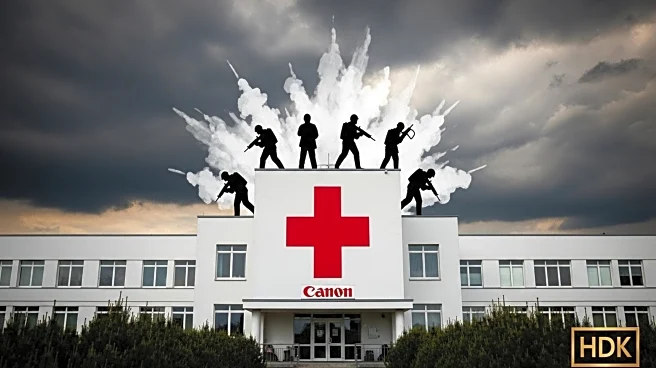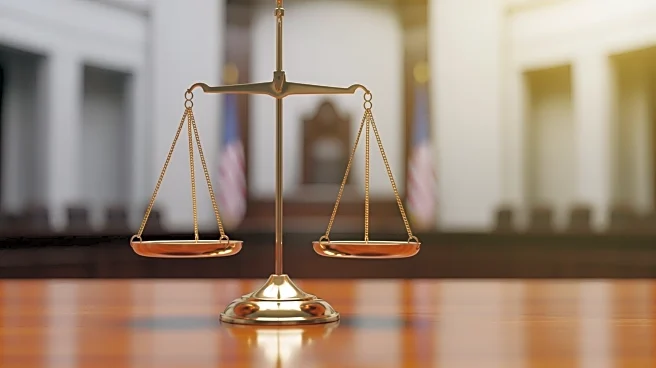What's Happening?
The Israeli Defense Forces (IDF) have issued warnings to humanitarian workers in northern Gaza, stating that only hospitals will be considered protected sites amidst ongoing military operations. This directive follows an order for all residents of Gaza City to evacuate, as the IDF intensifies its campaign against Hamas infrastructure. The situation has led to a mass exodus, with up to half a million people fleeing the city. However, many displaced individuals face significant challenges in relocating due to high transportation costs and logistical barriers. The IDF is expanding the Kissufim crossing to facilitate aid delivery to a designated humanitarian zone in southern Gaza, but aid workers report that access remains limited. The conflict has left much of northern Gaza in ruins, and the humanitarian situation is dire, with a famine declared in Gaza City by UN-backed experts.
Why It's Important?
The IDF's actions in Gaza have significant humanitarian implications, as the restriction of protected sites to hospitals alone places other aid infrastructure at risk. This development exacerbates the already critical situation in Gaza, where access to essential supplies is severely limited. The ongoing conflict and the IDF's military strategy could lead to further displacement and suffering among the civilian population. The international community, including humanitarian organizations, faces challenges in providing necessary aid and support to those affected. The situation also has political ramifications, as it may influence Israeli domestic politics and international relations, particularly concerning the Israeli government's approach to the Gaza conflict and its impact on regional stability.
What's Next?
The IDF's expansion of the Kissufim crossing is intended to improve aid delivery to southern Gaza, but the effectiveness of this measure remains to be seen. Humanitarian organizations are likely to continue advocating for increased access and protection for aid workers and infrastructure. The international community may exert pressure on Israel to ensure the safety and well-being of Gaza's civilian population. Additionally, the political landscape in Israel could be affected by the ongoing conflict, with potential implications for future elections and government policies. The situation in Gaza will require ongoing monitoring and response from both local and international stakeholders.
Beyond the Headlines
The conflict in Gaza raises ethical and legal questions regarding the protection of civilians and humanitarian workers in conflict zones. The IDF's strategy of targeting non-hospital aid sites may be scrutinized under international humanitarian law. The long-term impact on Gaza's infrastructure and population could lead to lasting socio-economic challenges, affecting the region's stability and development. The situation also highlights the complexities of conflict resolution and the need for effective diplomatic efforts to address the underlying causes of the conflict.








